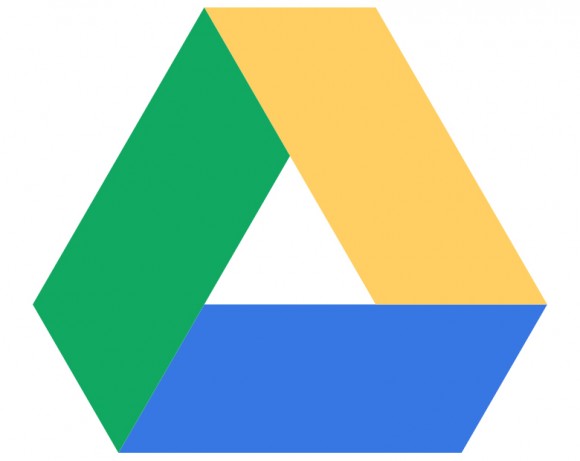 NEWS
NEWS
 NEWS
NEWS
 NEWS
NEWS
![]() The Google Drive formula is one often repeated these days by startups. Provide a dead-simple service that anyone can use. Open it up to developers. And make it something the business customer will find enticing due to its low price and fit with other services.
The Google Drive formula is one often repeated these days by startups. Provide a dead-simple service that anyone can use. Open it up to developers. And make it something the business customer will find enticing due to its low price and fit with other services.
Google Drive is already proving to be a well-executed service. It poses an obvious threat to the small players. But the big strategic threat is to the legacy, big box storage vendors.
Google Drive is robust enough that differentiation will need to be considerable by its competitors. Google Drive’s pricing and collaboration strengths give it a clear edge. Its focus on building developer ecosystem is a third. Its fourth: Google has its compliance and security policies in order.
Why such a strategic threat? The storage vendors big boxes are a significant capital investment for customers. The systems are not built for collaboration. Many of the legacy vendors have not adapted to the new developer movement. As a result, they have almost no ecosystems to speak of.
Google Drive does have weaknesses. Namely privacy. First, though, let’s go through the list of reasons why Google Drive represents a strategic threat to the traditional storage leaders.
Pricing: Google Drive costs 25 cents per gigabyte. It costs $250 per terabyte per year. How much do file-based storage arrays cost? $500,000?
Collaboration: Google Drive gives Google Docs a new boost. It is now dead simple to use Google Docs with Google Drive on your desktop. Unstructured data represents about 80% of what a company generates. With Google Drive connecting to Google Apps, people can easily upload then co-edit and collaborate. On this level, Microsoft SkyDrive may come close to competing with Google. But you still have to buy a software license for Office365. I am told it is not nearly as seamless as Google Drive is with Google Docs.
VMware is investing further up the stack. Socialcast, Zimbra and Mozy are part of its new offerings. How that fits with an EMC box still means configurations that require the expertise of an IT team with storage and network engineering teams. EMC also has a strong relationship with Microsoft that may be at odds with aligning more closely with VMware. Interestingly, VMware has announced its SlideRocket app integrates with Google Drive. NetApp partners with Microsoft for integration with Exchange and Sharepoint.
Ecosystem: Google, Box and Dropbox are focused on developing ecosystems. Google Drive launched with a number of apps that integrate with it. Without an ecosystem, the app market remains elusive for the storage incumbents. Apps are tied to data storage. The storage giants will have to continue relying on Microsoft for third-party app integration until they can develop services that are self-serve.
Governance and Security: The true differentiator for what makes storage viable in the enterprise. The big storage players bank on it. And there is merit to their point of view. One analyst said to me that in the long-term Google, Amazon Web Services (AWS) and Apple can be threats to storage, but there are still lots of concerns on governance, security, management, portability/lock-in and reliability.
For a different perspective I turned to CloudLock Co-Founder Tsahy Shapsa. CloudLock provides a content and context security policy engine for Google services such as Google Apps and Google Docs. Shapsa maintains that the argument put forward by the storage leaders does not hold up anymore. Google Docs can protect intellectual property through content and contextual filtering with technologies such as what CloudLock offers. Users can create and define who is allowed in a zone with rules for collaboration both internally and externally. Customers can define acceptable use policies to enforce internal governance and sharing. And security can go on “autopilot,” and provide ongoing monitoring and continuous scans to alert when policies have been violated. It sees everything. That capability puts Google in a position to differentiate on its full set of features, not its perceived lack of protection and regulatory deficiencies.
“There is a big storm coming and they don’t see it coming,” Shapsa said about NetApp, EMC and the traditional storage leaders.
Google Drive does have an achilles heel. Data privacy continues to gnaw at Google. Google Drive is the ultimate data upload. But it’s all about perception as Google’s Terms of Service are quite similar to other online storage services such as Dropbox, Microsoft’s SkyDrive, and Apple’s iCloud services. How Google manages its perception will in the end determine Google Drive’s success.
Google Drive does pose a strategic threat to the storage leaders. It’s not an immediate threat but in time, hardware will continue to get abstracted. The cloud systems will get better. In the meantime EMC, NetApp, IBM and the rest will make a fortune selling big converged systems. Customers want those big machines because they don’t want to manage data centers. The next step for the CIO is to take a good look at how their companies can become service providers themselves. Will they look more closely at Google Drive as a way to better manage storage? My bet is yes. This is an age of lightweight services that are powered by data fabrics and feed into a virtuous cycle of apps. It just makes sense as something to consider.
THANK YOU